Christopher Miller, PhD


Research
Dr. Miller holds a PhD in the Study of Religion from the University of California, Davis and master’s degrees in Theological Studies and the Study of Religion. Combining critical and yet community-engaged methods, he passionately engages in ethnographic and theological research seeking to address some of society’s most pressing concerns in light of Jain and yogic principles. These concerns include interconnected issues like climate change, animal rights, food and social justice.
At Arihanta Institute, Dr. Miller’s current research focuses on two primary areas: Engaged Jain Studies and modern yoga studies. In the field of Engaged Jain Studies, he has published and is currently working on articles pertaining to Jain veganism and Karma theory as well as Jain contemplative practice, and has recently compiled a thematic, full-length course workbook that applies Jain principles to many common issues of daily life.
Dr. Miller has published a number of peer-reviewed articles in the fields of Jain studies and modern yoga studies, and is the co-editor of the volume Beacons of Dharma: Spiritual Exemplars for the Modern Age (Lexington 2020).
He is the author of Embodying Transnational Yoga: Eating, Singing, and Breathing in Transformation (Routledge 2024). In this project, Dr. Miller specifically engages in interdisciplinary research that brings the field of modern yoga studies into dialogue with the fields of food studies, ethnomusicology and pollution studies.
Publications
BOOKS
Miller, Christopher Jain. 2024. Embodying Transnational Yoga: Eating, Singing, and Breathing in Transformation.
London: Routledge.
EDITED VOLUMES
Miller, Christopher Jain and Cogen Bohanec, editors. Forthcoming. Engaged Jainism.
Rita Sherma and Christopher Jain Miller, editors. Forthcoming. Ecology & Indian Philosophy: Hindu, Jain, and Yoga Perspectives on Climate and Environmental Mitigation. Proposal in process.
Miller, Christopher Patrick, Jeffery Long, and Michael Reading, editors. 2020. Beacons of Dharma: Spiritual Exemplars for the Modern Age.
New York: Lexington Books.
EDITED JOURNAL ISSUES
Miller, Christopher Jain, and Jeffery D. Long, editors. 2023. “A Continuing Search for Light in our Shared Times of Darkness: Introduction and Response to a Special Review Section on Beacons of Dharma: Spiritual Exemplars for the Modern Age.” Special Issue on Beacons of Dharma: Spiritual Exemplars for the Modern Age edited by Christopher Jain Miller and Jeffery D. Long
Journal of Dharma Studies (Springer).
Miller, Christopher, editor. 2016. Special Issue: “Contemplative Practice: Philosophy, Pedagogy, and Science.” International Journal of Dharma Studies (Springer).
BOOK CHAPTERS
Miller, Christopher Jain. Forthcoming. "Puruṣa bound from within / without looking on”: Gurani Anjali's Sāṃkhya-Yoga Musicon Long Island, New York. " In Yogic Traditions and Sacred Sound Practices in the United States,
edited by Brita Renée Heimark. New York: SUNY Press.
Miller, Christopher Jain. Forthcoming. "Jain Veganism in Dialogue with Jain Speciesism: Clarifying Jain Intra-religious Dialogue as a
Basis for Inter-religious Dialogue." In Bloomsbury’s Handbook on Religion and Food, edited by Yudit Greenberg and Ben Zeller.
Miller, Christopher Jain. Forthcoming. "Engaged Jain Yoga: Seven Cakras, the Buddha, and Mahāvīra on the Berlin Wall." In Engaged Jainism:
Critical and Constructive Approaches to the Study of Jain Social Engagement, edited by Christopher Jain Miller and Cogen Bohanec.
Miller, Christopher Jain. Forthcoming. "Conceptualizing ‘Engaged’ Jainism and the Field of ‘Engaged’ Jain Studies." In Engaged Jainism:
Critical and Constructive Approaches to the Study of Jain Social Engagement, edited by Christopher Jain Miller and Cogen Bohanec.
Miller, Christopher Jain. Forthcoming. “Engaged Jain Epistemology: Jain Responses to Climate Change.” In Ecology & Indian Philosophy: Hindu, Jain, and Yoga Perspectives on Climate and Environmental Mitigation,
edited by Rita Sherma and Christopher Jain Miller.
Miller, Christopher Jain. 2023. "Shedding Light on the Humane Hoax through the Deeper Dimensions of Jain Ahiṃsā." In The Humane Hoax Anthology, edited by Hope Bohanec. Lantern: New York.
Miller, Christopher Jain. 2023. “Contemplating Jivas: The Ecological Implications of Jainism's Elemental Meditations.” In Contemplative Studies in Jainism: Prayer, Veneration, Ritual, and Meditation in Jainism, edited by Rita Sherma and Cogen Bohanec. New York: Routledge.
Miller, Christopher Patrick. 2021. "Christian and Hindu Responses to Christian Yoga Practice in North America." In Routledge Handbook of Hindu-Christian Relations, edited by Chad Bauman and Michelle Voss Roberts. New York, Routledge. 280-293.
Miller, Christopher Patrick. 2020. "Paramahansa Yogananda’s World Brotherhood Colonies: Models for Environmentally Sustainable
and Socially Responsible Living." In Beacons of Dharma: Spiritual Exemplars for the Modern Age, edited by Christopher Patrick Miller, Michael Reading, and Jeffery Long. New York: Lexington Books. 163-180.
Miller, Christopher Patrick and Michael Reading. 2020. "Introduction." In Beacons of Dharma: Spiritual Exemplars for the Modern Age, edited by Christopher Patrick Miller, Michael Reading, and Jeffery Long. New York: Lexington Books. ix-xxi.
Miller, Christopher Patrick. 2018. "Yoga Bodies and Bodies of Water: Solutions for Climate Change in India?" In That All May Flourish: Comparative Religious Environmental Ethics, edited by Laura Hartmann. New York: Oxford University Press. 126-155.
Miller, Christopher Patrick and Dianna Bell. 2018. "Harmonizing Bureaucracy and Bio-Spirituality." In That All May Flourish: Comparative Religious Environmental Ethics, edited by Laura Hartmann. New York: Oxford University Press. 173-176.
JOURNAL ARTICLES
Miller, Christopher Jain and Jonathan Dickstein. 2021. "Jain Veganism: Ancient Wisdom, New Opportunities." Religions. Vol. 12, no. 512: Online
Miller, Christopher Patrick. 2020. " Softpower and Biopower: Narendra Modi’s ‘Double Discourse’ Concerning Yoga for Climate Change
and Self-Care ." Journal of Dharma Studies, Special Issue on Yoga Studies. Vol. 3, no. 1: 93-106.
Miller, Christopher Patrick. 2019. "Jainism, Yoga, and Ecology: A Course in Contemplative Practice for a World in Pain." In "New Directions in Jaina
Studies." Special issue edited by Anne Vallely. Religions. Vol. 10, no. 4: 1-14.
Miller, Christopher Patrick. 2018. "World Brotherhood Colonies: A Preview of Paramahansa Yogananda's Understudied Vision for Communities Founded upon the Principles of Yoga." Yoga-Mīmāṃsā. Vol. 50 no. 1: 3-9.
PEER-REVIEWED ENCYCLOPEDIA ENTRIES
Miller, Christopher. 2020. "Jainism." In Wiley-Blackwell's Encyclopedia of Sociology, Second Edition, edited by George Ritzer & Chris Rojek.
Miller, Christopher. 2018. "Sāṃkhya." In Hinduism and Tribal Religions, Encyclopedia of Indian Religions, edited by Pankaj Jain, et al. New York: Springer.
BOOK REVIEWS
Miller, Christopher Patrick. 2021. Review of Post Lineage Yoga: From Guru to #MeToo by Theodora Wildcroft. Journal of Contemporary Religion, 36:3, 587-589, DOI: 10.1080/13537903.2021.1923191
Miller, Christopher Patrick. 2021. Review of Living Landscapes: Meditations on the Five Elements in Hindu, Buddhist, and Jain Yogas by Christopher Chapple. Journal of Dharma Studies. Vol4,151–154 (2021).
Miller, Christopher Patrick. 2021. Review of Jainism and Environmental Philosophy: Karma and the Web of Life by Aidan Rankin. International Journal of Hindu Studies, 24: 407–443.
Miller, Christopher Patrick. 2020. Review Essay of An Introduction to Jain Philosophy by Parveen Jain. Journal of Dharma Studies, 3: 193–196.
Miller, Christopher Patrick. 2019. Review of Biography of a Yogi: Paramahansa Yogananda & the Origins of Modern Yoga by Anya P. Foxen. International Journal of Hindu Studies, Vol. 23: no. 1: 342-344.
Miller, Christopher Patrick. 2019. Review of Yoga in Britain: Stretching Spirituality and Educating Yogis by Suzanne Newcombe. Religions of South Asia, Vol. 12, no. 3: 413-416.
Christopher Miller, PhD's Courses
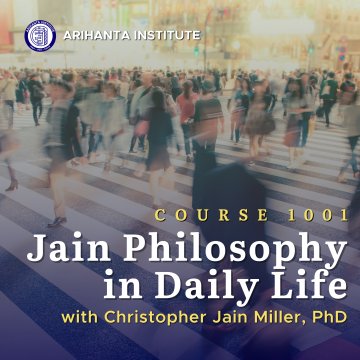
1001 | Jain Philosophy in Daily Life
1001 | Jain Philosophy in Daily Life
$99.00 USD
Instructor
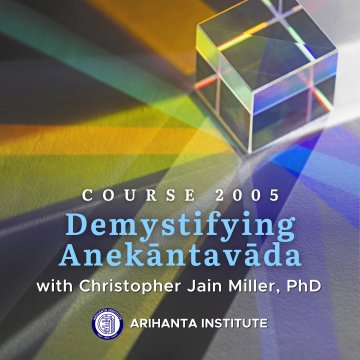
2005 | Demystifying Anekāntavāda
2005 | Demystifying Anekāntavāda
$99.00 USD
Instructor
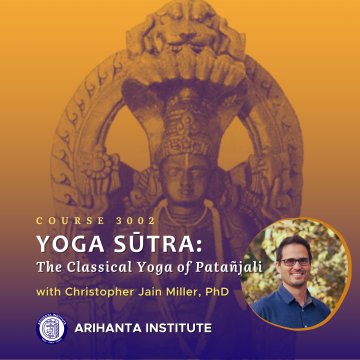
3002 | Yoga Sūtra: The Classical Yoga of Patañjali
3002 | Yoga Sūtra: The Classical Yoga of Patañjali
$99.00 USD
Instructor
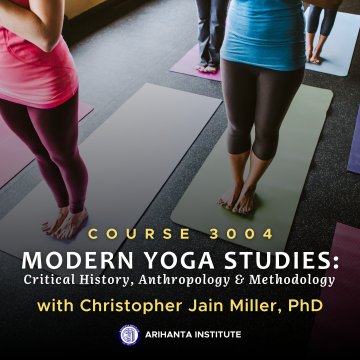
3004 | Modern Yoga Studies: Critical History, Anthropology and Methodology
$99.00 USD
Instructor
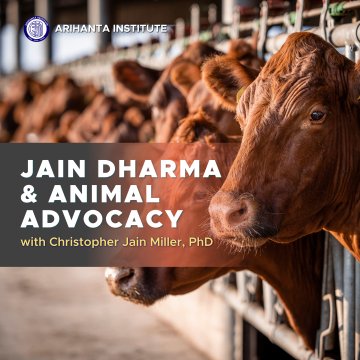
1006 | Jain Dharma and Animal Advocacy
1006 | Jain Dharma and Animal Advocacy
$99.00 USD
Instructor
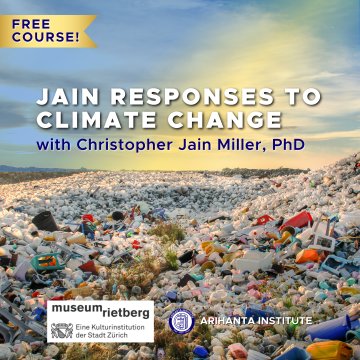
1008 | Jain Responses to Climate Change
1008 | Jain Responses to Climate Change
Free
Instructor
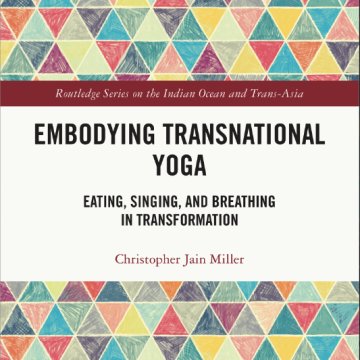
3006 | Embodying Transnational Yoga
3006 | Embodying Transnational Yoga
Instructor
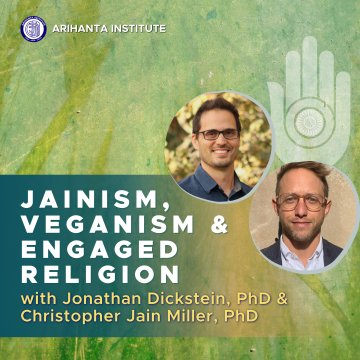
1014 | Jainism, Veganism, and Engaged Religion
1014 | Jainism, Veganism, and Engaged Religion
$25.00 USD
Instructors
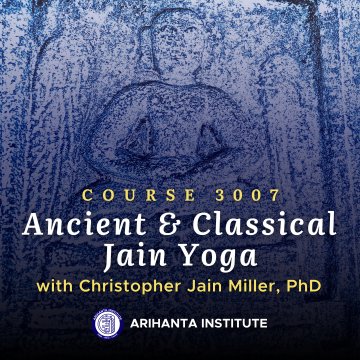
3007 | Ancient and Classical Jain Yoga
3007 | Ancient and Classical Jain Yoga
$99.00 USD
Instructor
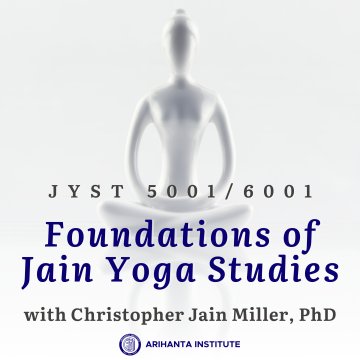
Foundations of Jain Yoga Studies
Foundations of Jain Yoga Studies
Instructor
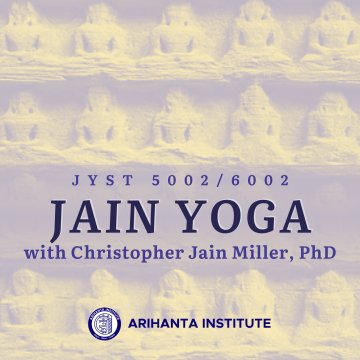
Jain Yoga
Jain Yoga
Instructor
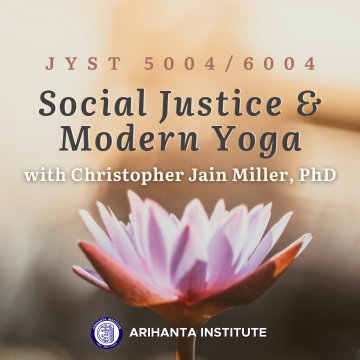
Social Justice and Modern Yoga
Social Justice and Modern Yoga
Instructor
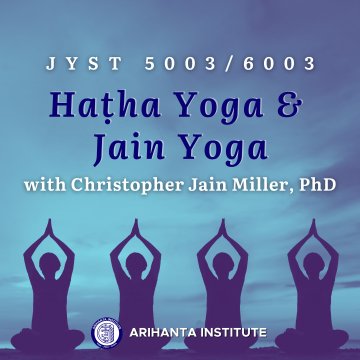
Haṭha Yoga and Jain Yoga
Haṭha Yoga and Jain Yoga
Instructor
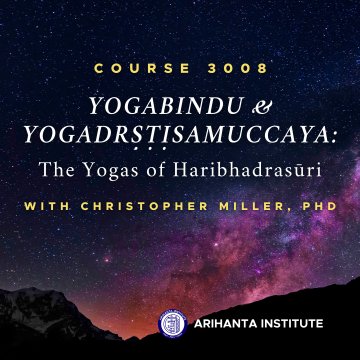
3008 | Yogabindu & Yogadṛṣṭisamuccaya: The Yogas of Haribhadrasūri
$99.00 USD
Instructor
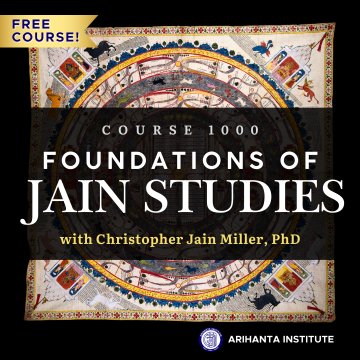
1000 | Foundations of Jain Studies
1000 | Foundations of Jain Studies
Free
Instructor
Enrollment Options
14-DAY FREE TRIAL
- Free, unlimited access to our self-paced courses for 14-days.
- Already used your free trial? Enroll in our Monthly or Annual Membership options at anytime and continue learning immediately!
MONTHLY MEMBERSHIP
- $45 USD / Month
- Immediate access to course #### | Name.
- Unlimited access to our live and self-paced courses for one month, with month-to-month auto rollover.
- Excludes graduate seminars and language courses.

 Christopher Miller, PhD
Christopher Miller, PhD Jonathan Dickstein, PhD
Jonathan Dickstein, PhD